failure to stop
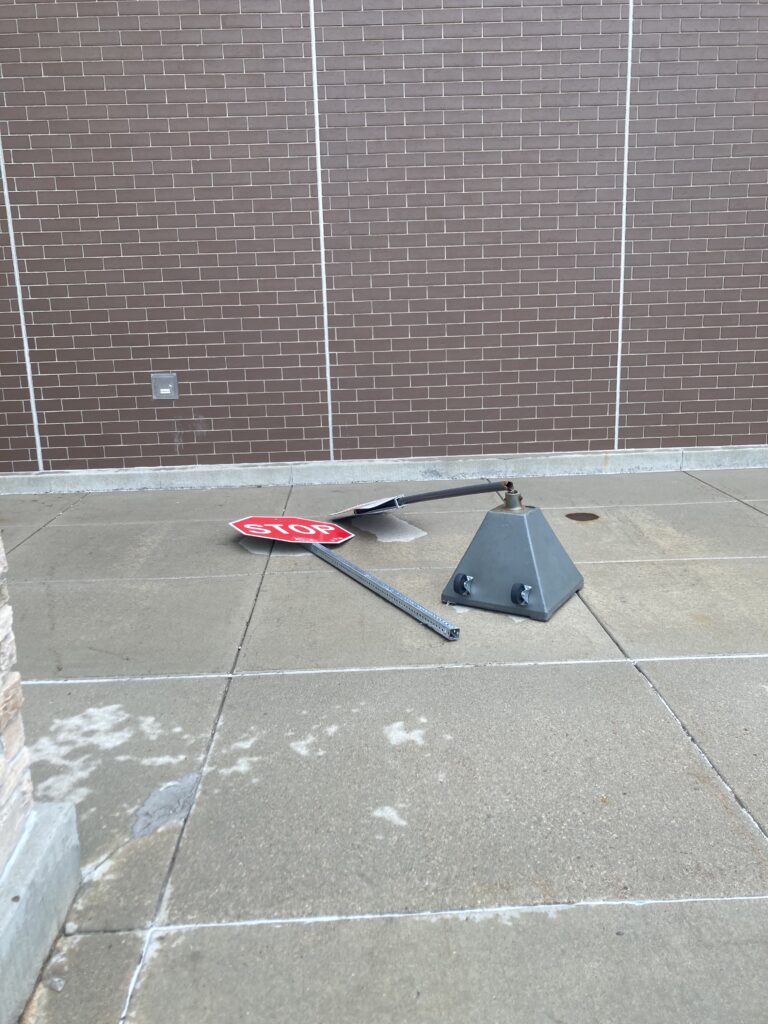
The traveler explores the American Wayside, verifying the contents of a mysterious guide written by a man with whom he shares a likeness and name. Excerpts from ‘Autumn by the Wayside: A Guide to America’s Shitholes’ are italicized. Traveler commentary is written in plain text.

‘As is the habit in academia, it took researchers a great deal of time and money to come to understand what any novice in the field would recognize about Able Forest in Arkansas: it is a statuary for rats. The pieces in ‘The Rat Statuary’ look like rats. They look so much like rats that, prior to the area’s viral popularity, most people were under the impression that it was a place where rats came to die, their bodies stiffening on the ground and drying into mummies for lack of regular precipitation. But, no. The statues are made of twigs and barks and leaves and, yes, sometimes the fur and skin of the dead but never enough to make them bodies, per se. Just effigies.
So, the academic question was never whether or not the statues looked like rats. And it took very little time and a few hunting cameras to confirm that the rats were, indeed, responsible for these creations, so the question was never who was responsible. No, the question that plagued researchers was why?’
Why indeed?
The floor of Able Forest is a mine field of these little rat statues, each one nearly exactly the same in size and pose, differentiated only in execution, really, and in weather-wear. The rats are posed on all fours, each with its head turned up and to the right as though they were made skittish by some sound above them. The effect is uncanny when a predatory bird flies over or when I position myself just right to be the cause of their concern. From that vantage point I can see the little beetle shells or river rocks the artists have installed in the eyes of their creations, mimicking the glossy wetness of a rat’s glance.
I’m not alone in ‘The Rat Statuary’ today. It’s a popular place, relative to other Wayside destinations, but there isn’t much appeal beyond the first few statues and the families have to drag their eldest children through the latter half of the displays, reiterating that not all journeys have social media potential and arguing that a ‘bad vibe’ isn’t reason enough to sit out an opportunity to learn.
For once, I’m with the teens.
‘The Rat Statuary’ has the bad vibe of art made obsessively or as a ward against some intimate evil. Why should these rats feel the need to reproduce this fearful posture again and again? Is it a tribute? A warning? I’ve seen the videos of the rats building and they do not strike me as happy. They do not look like they are at ease.
Some art grants its audience the sadness of its creator and it draws from an infinite supply. It frightens me to think that art could be a vessel- a means by which sickness can be transmitted. These rats seem sick and these statues are the symptom of what ails them.
I decline the dead-eyed plushies at the gift shop, their heads all swerved to the right. I worry about my own art and what it has done to the people who have witnessed it.
– traveler
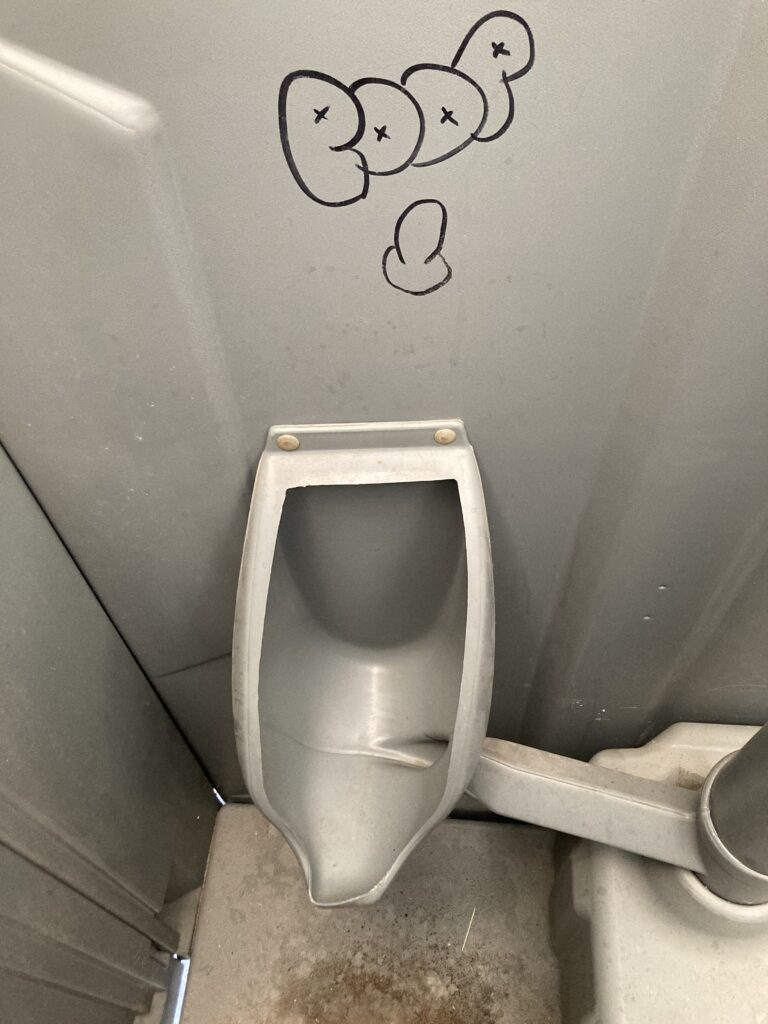
‘It is a magazine museum. It is a liminal labyrinth. It is ‘The World’s Largest Lobby,’ a title it shares contentiously with a venue in Germany which claims to win by volume (stateside, we win by acreage). One could fill a book with trivia regarding the sheer excess of ‘The WLL.’ It utilizes an amount of electricity that could power a small town toward playing quiet jazz and running an A/C unit just below the level of comfort. It holds the record for the most copies of a single magazine issue in the world: a 1991 copy of ‘Highlights,’ of which at least a thousand have been found. It provides more free water and trashes more plastic cups than the restaurant industry of Wyoming. These facts and more are included in a coffee table book about ‘The WLL,’ several copies of which can be found inside ‘The WLL’ and are, strangely, pictured in images collected in the book though only one edition was ever published.
People get lost in ‘The WLL,’ or, more accurately: people disappear in ‘The WLL.’ The intention of these people is not clear. Some say they run and some suggest it amounts to much the same thing.
As of this writing, one wing of ‘The WLL’ is off limits due to a recent fire (arson). A single body was discovered among the wreckage, unidentifiable, which has driven a lot of people to worry about their personal missing. The body has since been lost. Or, more accurately, it has disappeared. The intention of the people handling the body is not clear.
Some say it’s run, and that’s not the same thing at all.’
-an excerpt, Autumn by the Wayside
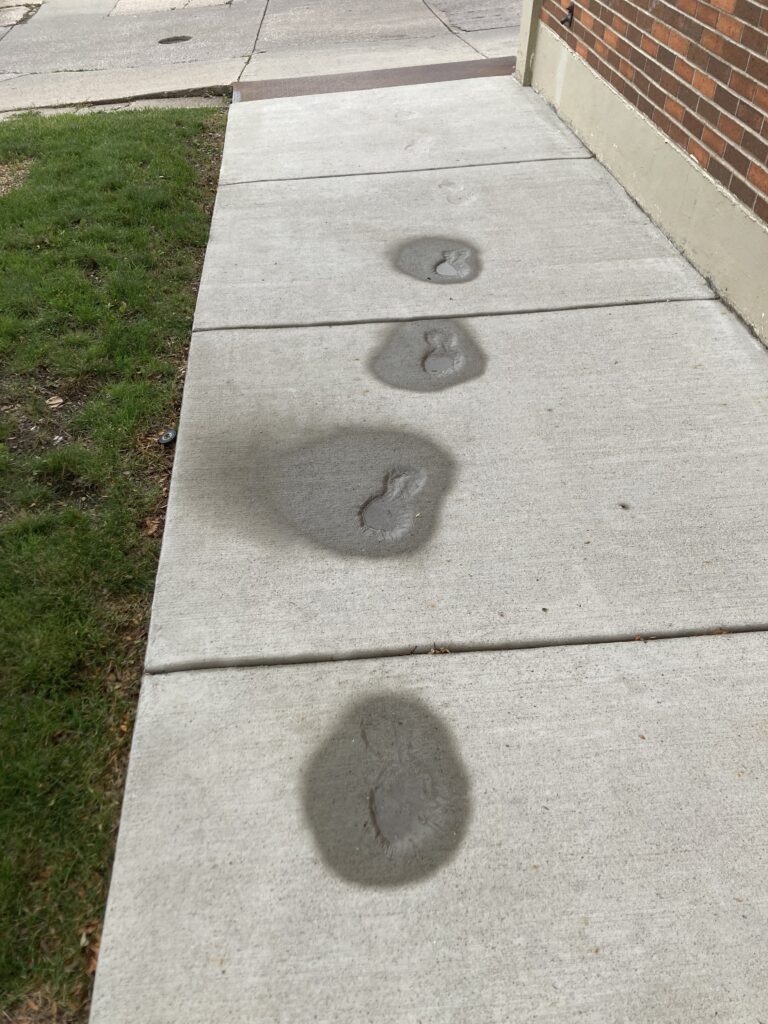
‘Nowhere in its advertising does ‘The Air Freshener that Smells Like Death’ suggest it smells like your specific death.
But it does.’
-an excerpt, Autumn by the Wayside
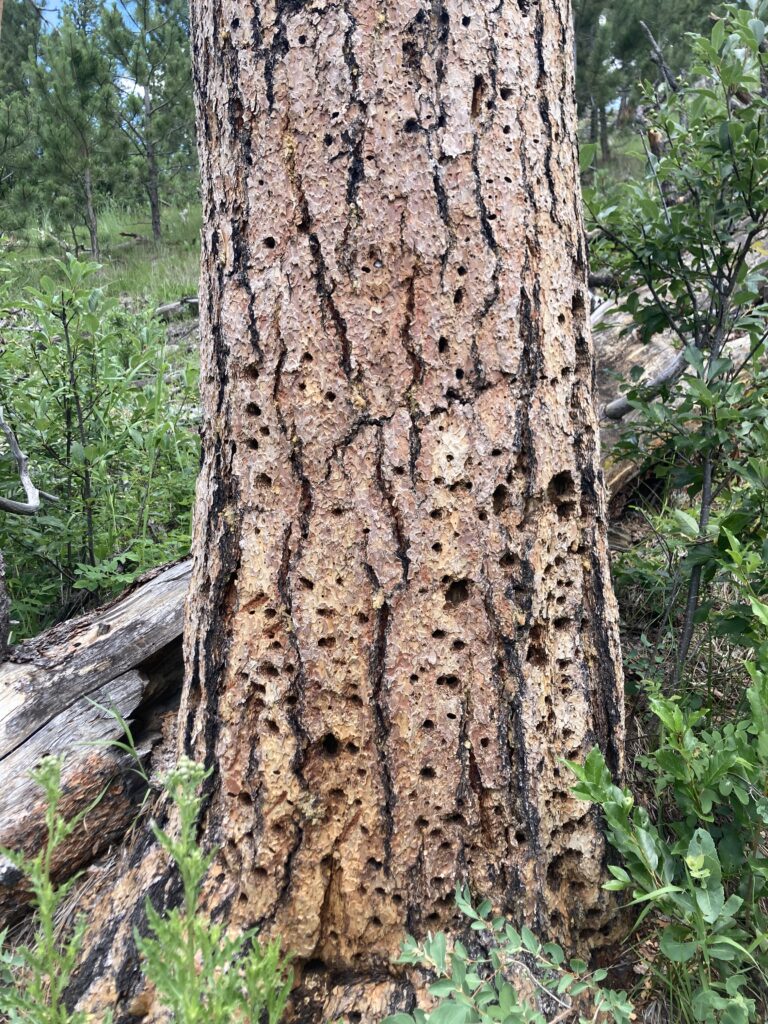
The Mini Moon has been closed to the public for nearly five years while ownership of the moon itself has been under legal review. In that time I, like others, have stolen glimpses of it. The Moon. The big one. I’d guess that the illegality of viewing the moon resulted in a lot more looking all around which, according to fringe voices in the conversation, confirms that it’s all some sort of pro-moon guerilla movement, as though the moon might be wanting for publicity.
The likeliest explanation, in my opinion, is that people are greedy and willing to try anything for a buck. ‘The Mini Moon’ is just the knot in a loophole somebody is trying to exploit.
The guide says it better than I could:
‘Lunar artifacts are, for the most part, in the hands of government agencies and those private firms and individuals the agencies trust. Some have fallen from the sky in a process traders refer to as being ‘naturally transported.’ These specimens are largely considered duds as experts and collectors tend to agree that mystique burns off in the atmosphere.
Some of the good ones have been stolen, though, and that’s where things get interesting.
Beginning in 1990, a commercial aired nationwide, offering cash for certifiable samples of the moon. Just like that, samples began disappearing and approximately a year later ‘The Mini Moon’ formed in New Jersey. No larger than a thumbnail at its outset, ‘The Mini Moon’ has a presence that viewers unanimously describe as ‘unearthly.’ Staged under cold lights and protected by no barrier, this ghostly luminescence was, for many years, all the proof Wayside travelers needed that it was constructed from the real stuff.
And it grew.
By the time the wronged agencies began to wonder if something funny was afoot, ‘The Mini Moon’ had grown to the size of an adult man’s head. It maintained a signature surface, matte white and uncomfortably crater-less, that made it difficult for would be prosecutors to identify. If the owners of ‘The Mini Moon’ were buying stolen specimens, they were going a step further: grinding the rocks into a powder that could be molded into the new sphere.
The first headlines were inflammatory, calling ‘The Mini Moon’ a product of a brash and ongoing heist and indicating the near-pricelessness of moon rocks made it the most valuable take in human history. Still, ‘The Mini Moon’ remained unprotected in its display and this, for most, was an indication that the thing was a fake after all. Nothing worth so much would be left unattended while crowds shuffled by for picture opportunities. And the crowds were still coming- of course they were. On the Wayside, counterfeits, done well, can have just as much merit or more than their originals.
Then, in 2020, when the world faced the pandemic, the federal government took the opportunity to launch a formal investigation, all at once lending ‘The Mini Moon’ more credence than it had ever had. At the time, due to Covid lockdowns, ‘The Mini Moon’ could only be viewed via a public livestream sandwiched between ads. The livestream soon became viral and spawned several lofi-style offshoots that viewsers praised for providing simple peace in tumultuous times.
This same viewership criticized governing bodies for cracking down on a small business owner when the world seemed to be falling apart around them and, in response, the leading committee doubled down and, via complex legal shenanigans, made it temporarily illegal to look at the moon. The public lost its nerve and, like a slapped dog, buried its head in blankets.
Views of the livestream remained steady, however, which allowed the owners of ‘The Mini Moon’ to launch the expensive defense that has kept the issue in limbo up through the time of this guide’s publication.
‘The Mini Moon’ may be shuttered by the time you read this page, traveler. Do your research and keep your eyes down.’
‘The Mini Moon’s’ grand reopening was a week ago but, by the time I reach the warehouse that contains it, the crowds have largely dispersed. I wait in a 30-minute line before I’m ushered inside. The people ahead of me gasp as they enter and I’m still surprised by what I see: ‘The Mini Moon’ not so mini, now the size of a turn-of-the-century VW Bug and glowing grey-blue. It is difficult to describe why I know it is the moon, but I do. They’ve been collecting, all this time, more pieces of moon than should exist on earth.
No wonder the government has questions.
I welcome belligerence from the small business community in theory, but I also worry about exposure. The Wayside has been a haven for me in a country that is largely hostile. The less the government thinks about us off the shoulder of the highway, the better.
-traveler
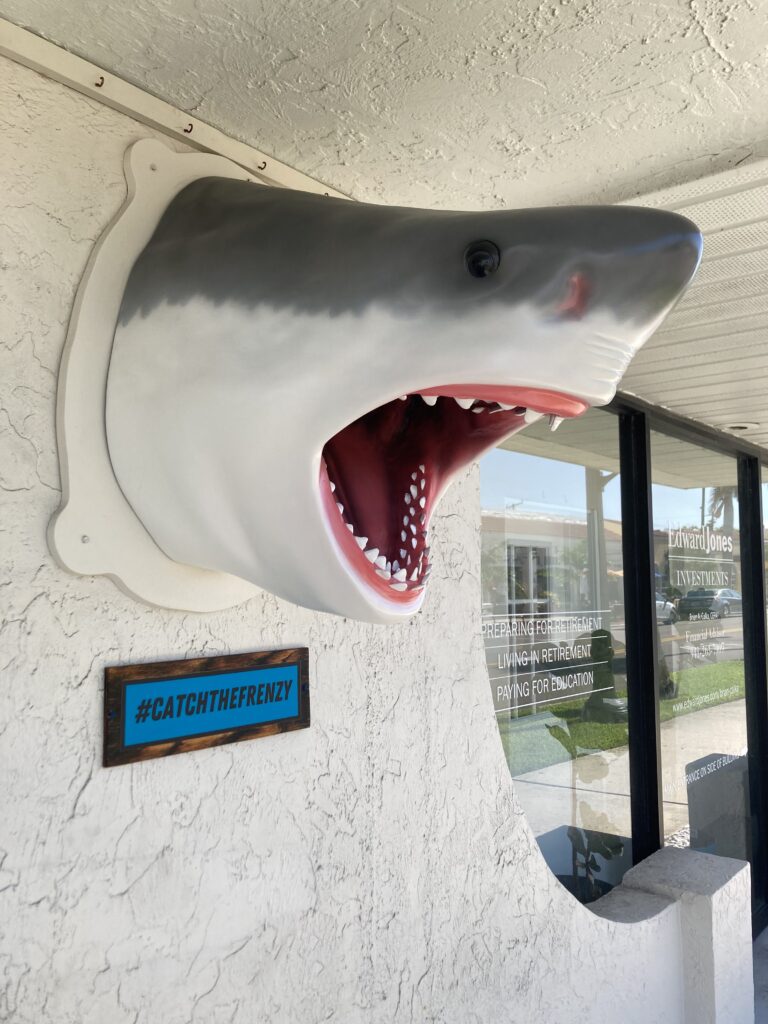
The restaurants of the Wayside are not known for the quality of their food but rather the qualities of the food. An important distinction. The food leans unique. It leans experimental, though the experiments are largely without intention. It leans inedible, sometimes, and in this case it leans so far it falls.
‘At the intersection of food and art there is ‘The Poisoned Plate,’ a restaurant that serves from a menu of natural, organic, farm-to-table, poisonous food. No, not like what you’re thinking. Not the puffer fish that has to be cut just so. Not the thistle, that loses its bite when cooked. This food is prepared such that the poison remains intact and, though it isn’t specified anywhere, the food is prepared so that the poison saturates every bite. There are those who might want to visit the restaurant as a challenge. There are those who might try to nibble the garnish and say they survived a meal at ‘The Poison Plate.’ They would likely die or suffer the chronic and life-long effects of nerve damage.
Signage says as much.
‘The Poisoned Plate’ has no license to serve food. It’s zoned as an art gallery, likely as a defense against lawsuits arising from patrons who choose to ignore the generous warnings of servers and the bold print on the menus and the waiver one must sign before sitting. The only thing that indicates one might consider eating the food is the absolute delicacy with which plates are prepared. The food looks good. It looks really good and it smells delicious. It is the enemy of the primal brain and that seems to be the thesis, if a thesis beyond profit can be said to exist.’
I order the cheapest item on the menu, which still sets me back $60. It is a side salad that consists entirely of poisonous greens, served with a vinaigrette of berries that can only be digested by a bird that shares its ecosystem. The bird is also on the menu, its flesh made poisonous by its diet of berries, but I can’t afford it and wouldn’t buy it even if I could. I roll my eyes and try to take a sip of my water but a server gasps and knocks the glass out of my hand. The water is laden with heavy metals. The broken glass, though not considered a food item, is mildly radioactive. The silverware is lead.
I pay the bill and they bring me my salad in a to-go box. Where can I throw something like this away, knowing it might kill whatever scavenges it? The salad rots in the RV for a week before I burn it in a campfire, careful not to breathe the fumes.
-traveler
© 2024 · Dylan Bach // Sun Logo - Jessica Hayworth